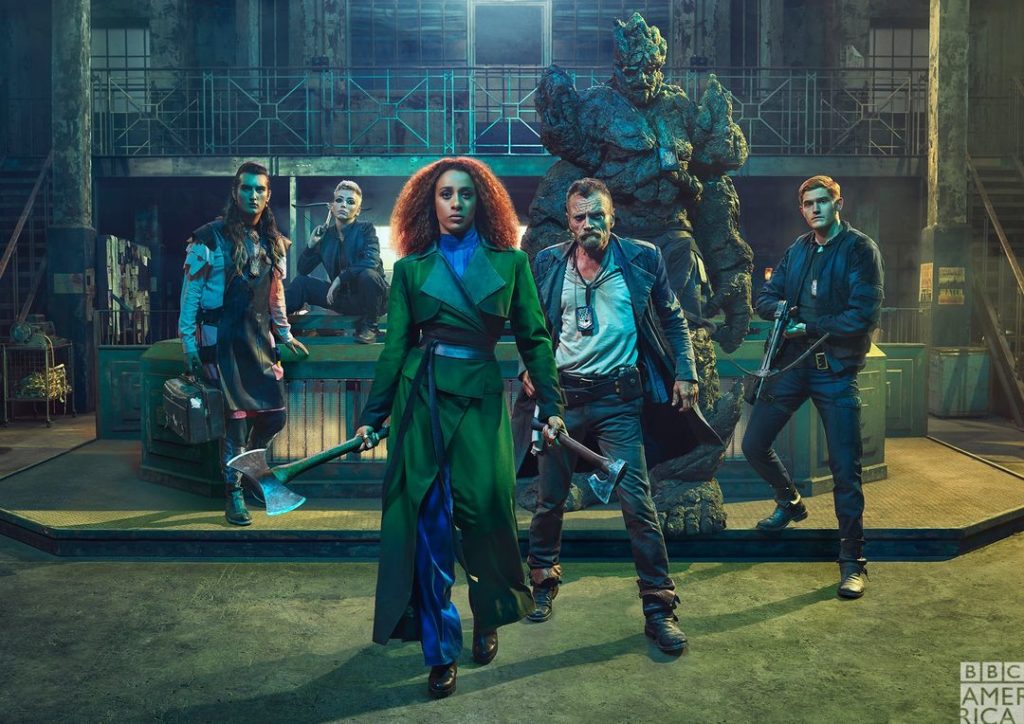Terry Pratchett’s Discworld novels are a bestselling series set in an over-the-top fantasy world — a disk held up by four elephants floating through space on the back of a giant turtle.
There have been several attempts made to turn the books, of which there are over 40, into movies.
But all we got were TV adaptations, which include The Hogfather, The Color of Magic, and Going Postal, each a three-episode miniseries from Sky One currently available on Prime Video.
They were okay, and reportedly well-received in the UK, but, to me, missed the magic of the original books.
And it’s not that I hate adaptations in general. I’ve read all the Harry Potter and Hunger Games books, and loved the movies. I’ve got plenty of quibbles with both, but to me, these adaptions caught the essential magic of the books.
With Pratchett’s Discworld, however, it’s easy to miss the magic for, well, the magic. The Discworld setting is way over-the-top. There are werewolves and vampires, dwarves and wizards, and Death himself is a main character in several books. But at the heart of the series, the main characters are all extremely human. Even the non-humans. They are very real people, reacting to the insane situations around them a lot like a normal person would. They are not caricatures or fantasy stereotypes.
This is part of what makes Pratchett’s books such a great send-up of the fantasy genre, but also a highly relevant satire of modern life.
My favorite of Terry Pratchett’s characters is Sam Vimes, who starts out as the captain of the Night Watch in Discworld’s most interesting city, Ankh-Morpork. He’s flawed but capable, inspires loyalty in his subordinates, loves his job, city, and the people in it.
So, today, when I found out that BBC America is going to do a mini-series about the Night Watch, I couldn’t click on the preview video links fast enough.

“The Watch” is scheduled to premiere January 2021, and features a medieval fantasy-meets-industrial punk aesthetic that immediately struck me as an extremely odd choice.
But you expect a film adaptation not to look like what you imagined the setting to be when you were reading the book.
The punk look was a little off-putting, but okay, I can get past that.
I watched the next “sneak peak,” which I can no longer find on YouTube.
Once past the shock of the setting came the shock of the characters. Sam Vimes looks nothing like what I imagined him to look. Pratchett himself has described him as a slightly younger version of Peter William Postlethwaite.

Lady Sybil Ramkin, a heavy older woman who runs a sanctuary for abandoned dragons, is now a hot young vigilante — the redhead in the center of the cast photo above.
Lord Vetinari is now played by a woman. Cheery Littlebottom is a bearded dwarf in the books, but is now the hot non-binary actor at the far left.
But I can get past the changes in genders, heights, and ethnic backgrounds. I’m all in favor of creative, diverse casting. Okay, I’m a little upset that much of the cast is now hot young people but, well, that’s TV for you. I guess I can get used to looking at attractive people instead of what I expected these characters to look like.
Moving on.
This third clip, also no longer available, is a little scene between Captain Vimes and Lady Sybil Ramkin. There’s a little humor here, of the forced slapstick variety.
The Discworld books are very funny, so I’m not at all opposed to having humor here … but Pratchett’s humor comes from the basic humanity of the characters.
In the previews that BBC America made available at the New York Comic Con today, that humanity is missing. Ironically missing, since more of the characters are depicted as humans. But missing. And it has been replaced by over-the-top caricatures, sex appeal, and slapstick.
To say that I’m disappointed would be an understatement.
I’m not saying that I won’t watch at least some of it when the series comes out in January. But based on these previews, I can say that I won’t be able to watch much of it.
I’m not alone, either. The YouTube comments are overwhelmingly negative, with sentiment running two-to-one against in the shorter clips, and three-to-one against in the longer clip, the one with the most views.
Edited by Amira Loutfi
MetaStellar editor and publisher Maria Korolov is a science fiction novelist, writing stories set in a future virtual world. And, during the day, she is an award-winning freelance technology journalist who covers artificial intelligence, cybersecurity and enterprise virtual reality. See her Amazon author page here and follow her on Twitter, Facebook, or LinkedIn, and check out her latest videos on the Maria Korolov YouTube channel. Email her at maria@metastellar.com. She is also the editor and publisher of Hypergrid Business, one of the top global sites covering virtual reality.

